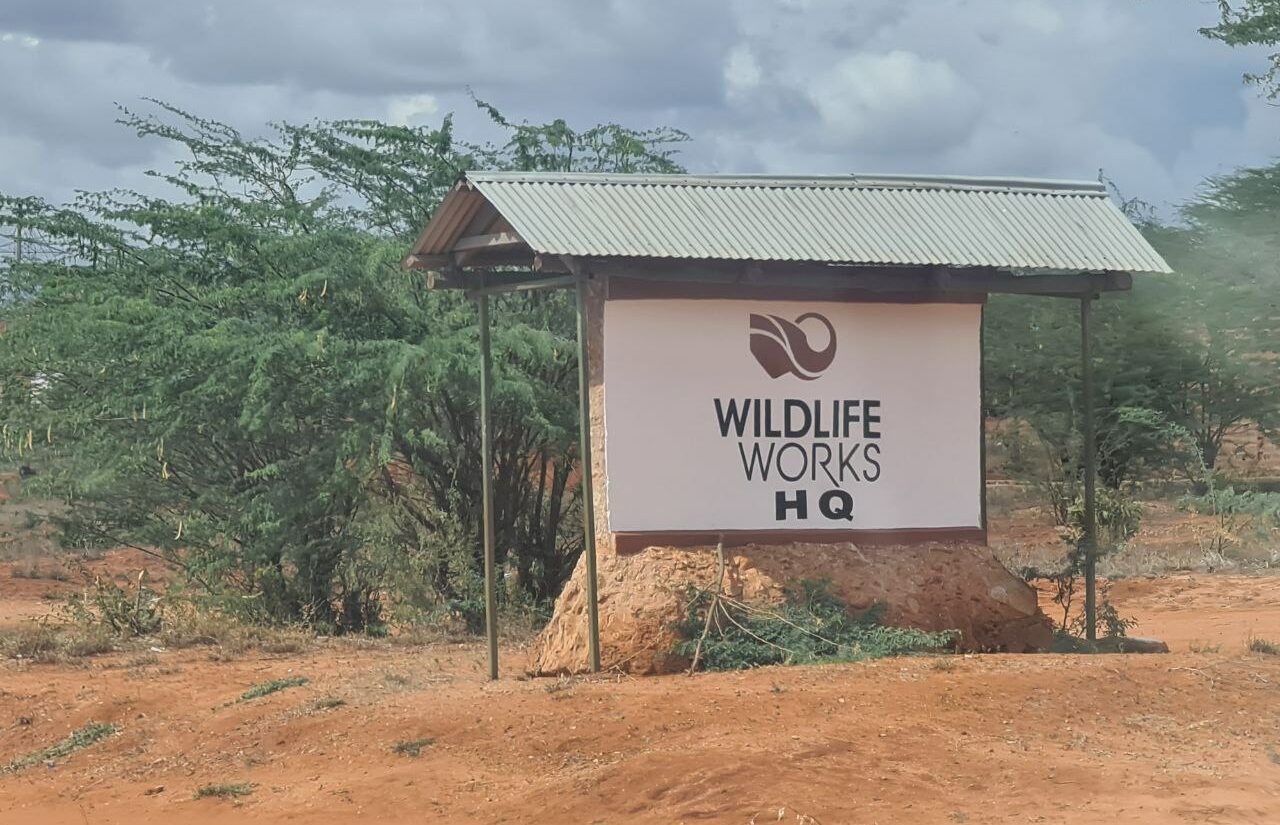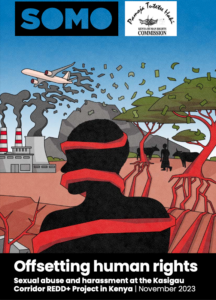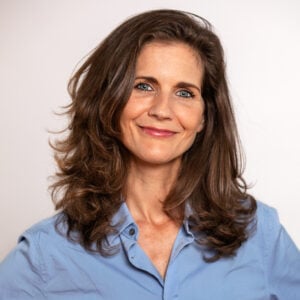
Systemic sexual abuse at celebrated carbon offset project in Kenya
Carbon offsetting is increasingly discredited as a means to address carbon emissions. Challenges to the offset industry’s concept and methodology have been coming thick and fast in the last year. Now, attention to the human rights impacts is growing, and not a moment too soon.
A major investigation by the Centre for Research on Multinational Corporations (SOMO) and the Kenya Human Rights Commission (KHRC)(opens in new window) has exposed serious, systemic sexual abuse of women at the celebrated Kasigau carbon offset project in Kenya, run by the US-based company Wildlife Works(opens in new window) . Women working at Kasigau have faced years of sexual harassment and abuse – including physical assaults – by a small group of senior male employees. The women shared truly shocking accounts of repeated unwanted touching and physical attacks on company properties and in vehicles by men who appeared to operate with impunity.
Women are “treated as sex objects, but nothing happens because [the perpetrators] intimidate everybody”, one woman told researchers.
Wildlife Works and its backers have promoted Kasigau in glowing terms, touting its credentials on, amongst other things, women’s empowerment. For many women, the reality was very different. Women employees, past and present, described a permissive culture where fear of losing their jobs was the key to the power of senior men.
The power imbalance
Kasigau is a poor area. Wildlife Works is the main – and one of the very few – employers. A small number of senior men in the company were able to leverage this and use their positions of power to demand sex in return for promotion and better treatment at work. Refusal of sexual demands was, we were told, met with retribution, including being bullied, intimidated, and refused promotions or other work-related benefits.
Despite the risks, some of the women SOMO interviewed had reported the sexual abuse to Wildlife Works. No known action was taken.
The abuse was targeted not only at the women employees but also at the wives of male rangers, some of whom were reportedly told that their husbands’ jobs depended on them having sexual relations with a senior person within Wildlife Works. Men whose wives had been targeted found it difficult to speak about the issues but opened up because they were desperate for the abuse to stop.
One man told SOMO: ‘It’s so cruel… our sisters are just not safe working at that company. I can’t allow my sister or wife to work at that company because the things that will happen to her there can affect her for the rest of her life”.
Our investigation shows how sexual harassment and abuse were well-known in Kasigau. In addition to the women survivors of the abuse, we interviewed women and men who corroborated specific instances or the wider culture. Those interviewed identified alleged perpetrators of the abuse repeatedly by name. SOMO received accounts dating back a decade or more.
Inadequate company response to date
Today, SOMO and KHRC have published a dossier of evidence based on the testimonies of 31 current and former employees and members of the local community. We shared the findings with Wildlife Works in August 2023, within weeks of the interviews being conducted. In response, the company hired a Kenyan law firm to investigate.
We have concerns about the nature of the investigation conducted by Wildlife Works, which does not appear to have allowed all victims to come forward in safety and privacy.
As a result of this investigation, Wildlife Works says it identified that “two individuals had engaged in deeply inappropriate and harmful behavior for which we have zero tolerance(opens in new window) ”. However, this “zero tolerance” was apparently not backed up by any effective system of monitoring or accountability, given that the abuses we identified happened over many years.
Disappointingly, Wildlife Works’ response does not elaborate on how those affected by the “harmful behavior” will gain adequate remedy. This must be a central part of any response by Wildlife Works. It is also critical that proper support is provided to the survivors of sexual harassment and abuse.
Wildlife Works has also stated that it did not get a right of reply to SOMO’s findings. This is incorrect. As Wildlife Works itself notes, we sent them a letter detailing the allegations and asking for their response in August 2023.
The letter from SOMO and KHRC appears to have triggered the investigation by Wildlife Works, and we can only assume that if we had not alerted them to this “deeply inappropriate and harmful behavior” for which they claim to have “zero tolerance”, such abuse would have continued for years to come. We reiterate our call for Wildlife Works to focus on those affected by its failings as an employer and on remedies for victims of abuse.
A failing fable
Given these revelations, hard questions must be asked: Kasigau’s carbon credits are seen as premium credits – in part because they claim to support women’s empowerment. The reputation of these commercial ventures depends, in part, on painting a picture of supporting local livelihoods and women’s rights. When this is part of the sales pitch, will evidence of a different reality be ignored?
Other companies must also be held accountable. Social and environmental auditors repeatedly assessed the project. None of the audit firms reported finding any sexual abuse or, indeed, any serious problem at all.
Verra, the organisation that oversees standards in carbon offsetting, has responded publicly to the allegations of sexual harassment and abuse at Kasigau. Verra says it has put the project and any further credit issuances on hold until it completes an investigation(opens in new window) . While it is important that Verra has taken action, the allegations of abuse, which Verra will now investigate, were not picked up by Verra or the audit process that is integral to its carbon offsetting system. This raises serious questions about the auditing and accreditation system that underpins the carbon offsetting industry that has enabled such abuses to go unchecked for so many years.
-
 Offsetting Human rights: Sexual abuse and harassment at the Kasigau Corridor REDD+ Project in Kenya (pdf, 1.80 MB)
Offsetting Human rights: Sexual abuse and harassment at the Kasigau Corridor REDD+ Project in Kenya (pdf, 1.80 MB)
Do you need more information?
-

Maria Hengeveld
Corporate researcher
Related news
-
Brazil’s justice system challenges the phenomenon of ‘carbon land grabs’Posted in category:Opinion
 Daniel PorcelPublished on:
Daniel PorcelPublished on: Daniel Porcel
Daniel Porcel -
 SOMO submits input for update of UN List on corporate involvement in Israeli settlementsPosted in category:NewsPublished on:
SOMO submits input for update of UN List on corporate involvement in Israeli settlementsPosted in category:NewsPublished on: -
Chain of consequences Published on:
 Joshua RosenzweigPosted in category:Publication
Joshua RosenzweigPosted in category:Publication Joshua Rosenzweig
Joshua Rosenzweig


